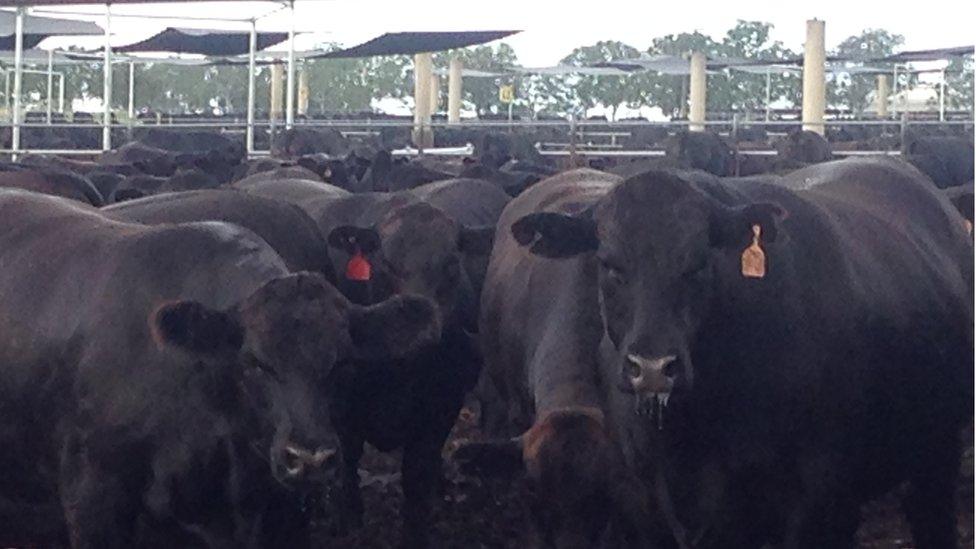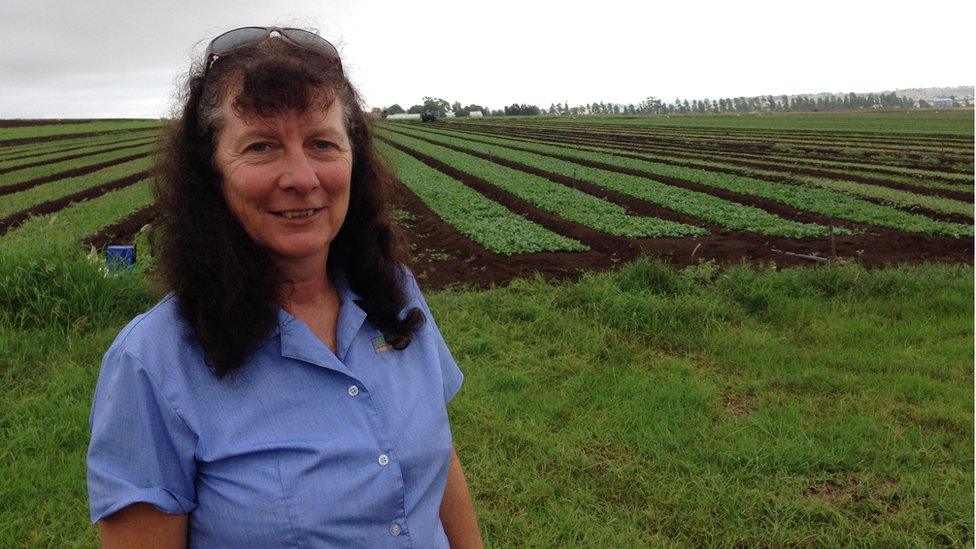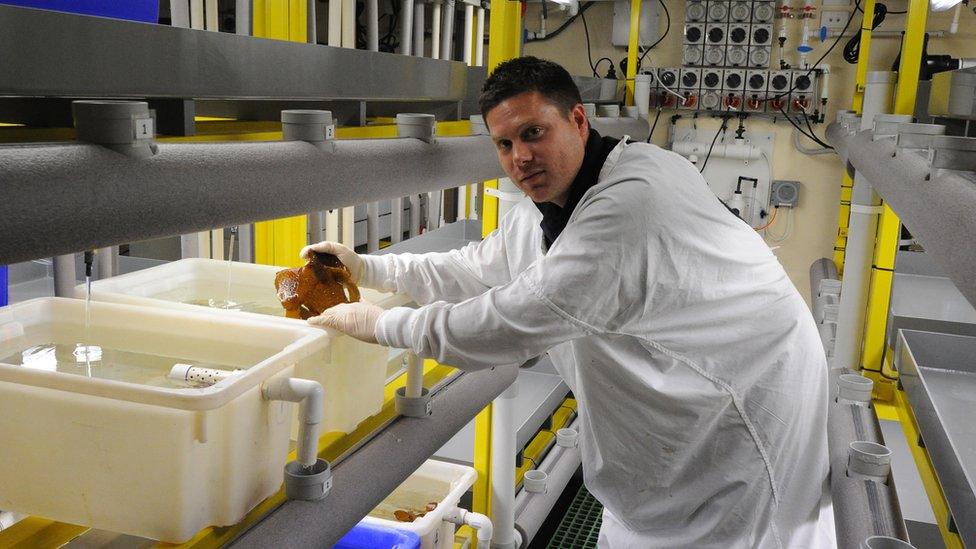Australia turns to agriculture as mining boom cools
- Published
- comments
WATCH: Karishma Vaswani on agriculture in Australia
It is an early start for the workers at the Oakey Beef exports factory in Toowoomba, Queensland.
Everyone's hard at work, with only the clangs of the sharp knives of the meat slicers to break up the monotony.
It is a scene straight out of a futuristic film: dozens of men, in pristine white lab coats and hats, on a production line, hacking away at massive chunks of raw meat hanging in front of them.
Some of the workers here have been on this factory floor for close to two decades - fathers and sons, generations of families who have worked here. The factory has become an integral part of this town's life.
For Scott Grossman, it's more than just a job. It's a lifeline.
He's a slicer on the factory floor, and spent 14 years of his life here. But three years ago he left this job for an oil rig. When oil prices were high, his salary doubled. But just before Christmas he lost that job because oil prices crashed, and now he's back.
"I was made redundant because of the downturn," Scott told me in between slicing of parts of beef. "It came as a shock actually. We all knew that resources were slowing down, but I thought I would be safe. No one is safe."
When Scott returned to Oakey exports, he noticed a dramatic difference in the direction of the company's business.
"It's a lot faster in the boning room to what it was when I left. Everyone has higher production targets now," he said. "From what I've seen we seem to be doing a lot less domestic and a lot more export."
Asian demand
That's the picture across the country. Asia has become a major buyer of Australian agricultural products.
Australia sold a record $600m of beef to China in 2015, and that growth shows no signs of slowing, with China's appetite for beef expected to soar to 2.2 million tonnes by 2025.

China's appetite for beef expected to soar to 2.2 million tonnes by 2025
The push into agriculture couldn't come soon enough.
Recent reports forecast a worrying economic future for Australia, despite it having had 25 years of consecutive growth.
The Committee for Economic Development of Australia (CEDA) says Australia is facing hazards it hasn't seen in its economy in more than 20 years.
The end of the mining boom, and a dependence on China are both reasons why Australia is suffering, which is why the government is so keen to keep agricultural exports to Asia growing.
"I think the growing middle classes in Asia are here to stay, and I think those opportunities are real," said Josh Frydenberg, Australia's minister for resources, energy and Northern Australia.
"We have seen the opportunity from the middle class in Asia. Some 3 billion people in the coming decades will be in the Asian middle classes.
"Rapid rates of urbanisation and continued population growth will lead to a demand for all sorts of services ranging from medical, to education, to high quality agricultural products, and high calorie products like beef. It's an opportunity for Australian exporters."
Premium products
But Australia's agricultural exports are only worth a third of what coal and iron bring to the economy.
Even if Australia tried to be the food bowl of Asia, it only produces food enough to feed its own country and another 80 million people. That's not enough to feed neighbouring Indonesia, let alone the whole of Asia.
Australian producers say though that they're not trying to satisfy the entire region's needs - it's just the 1% or 2% at the top who they want to sell their premium products to.

Australian farmer Anne Story hopes Asia's rising middle classes in Asia will keep her business growing
Anne Story is the woman in charge at Story Fresh Farms in Toowoomba. She is hoping that the rise of the upper middle classes in Asia will keep her business growing.
"As a producer from an Australian perspective, our limitation has been that we have a small population," she told me as we walked around her lettuce fields.
"We have a lot of producers but a small market. Even if Asia slows down, there are still so many people who can select what they want to buy, who are able to pay for it now because they're in the right socio-economic class. So even though they're retracting, it's still a massive market from a business perspective."
That may be far too optimistic a view, given that Australia's been burned before by hitching its fortunes to Asia, and in particular to China.
First Australia sold coal and iron to the Chinese, now its trying to sell lettuce and beef.
But as Asia slows down, that could hurt farms and feedlots here in the future.
- Published7 December 2015
